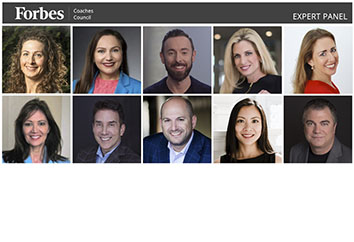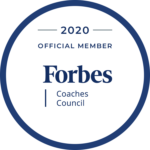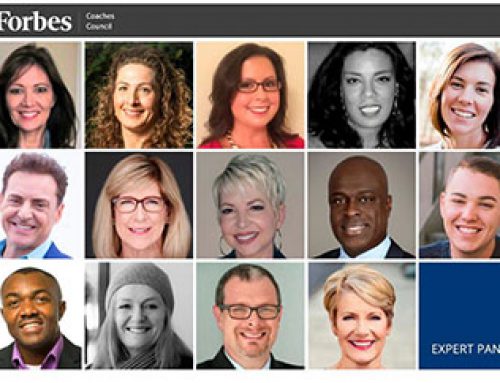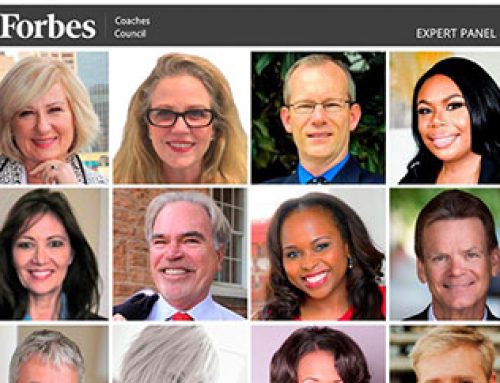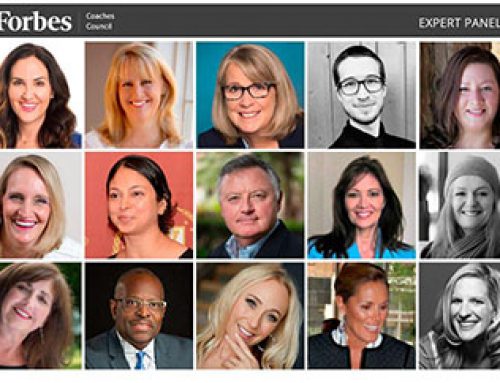The hiring process is an important, but time-consuming, process. It can be exhausting to sort through applications to determine which candidates have the necessary qualifications for your job opening.
One time-saving technology recruiters and hiring managers are using is artificial intelligence (AI), which can be especially useful when sorting through a large number of applications. However, there are also some potential downsides to consider when using AI.
We asked 10 Forbes Coaches Council members what issues AI raises with increased use in the hiring process, and how you can best work around those challenges.
1. Can Be Off-Putting For Candidates
While technology is useful, it’s important not to lose sight of the human factor. Top talent might be put off by the lack of human touch. Screening interviews are being done, in some instances, by software instead of humans. Not everyone performs well when being recorded. Many suffer from anxiety under such conditions, resulting in low metrics and missed opportunities. Use technology wisely. – Erin Urban, UPPSolutions, LLC
2. Learns Human Biases
There is a great promise that AI can eliminate human biases, such as gender preferences or hiring students from a certain university. However, AI needs a lot of data so it can screen resumes like humans. Moreover, it learns through observing repetitions of previous behaviors. There is a risk that it will adopt biases from these patterns if it is not updated properly. – Inga Bielińska, Inga Bielinska Coaching Consulting Mentoring
3. Ignores Resumes That Aren’t Search Engine Optimized
Most job seekers aren’t aware of how AI, or an applicant tracking system, will process their resume. This creates the challenge for the recruiter of missing out on great candidates if the resume isn’t written in the most appropriate format. For example, if you’re looking for CRM experience and the resume says “SAP experience,” will it know the difference? Be careful what you search for! – Gavin Ryan, NEKSA
4. Lacks ‘Gut Instinct’
AI will be a great way to replace simplistic job responsibilities. That opens the door for more growth opportunities for employees who used to spend time doing those tasks. However, there will always be the need for the human touch, including incorporating gut instinct into the hiring experience. The key is to keep the human aspect involved in the question and answer part of the process. – Dr. Diane Hamilton, Tonerra
5. Doesn’t Assess Tone, Personality Or Soft Skills
If you’re using a “matching” algorithm that is nothing more than a word-for-word match (technology that’s been around for 30 years), you’re not assessing tone, personality or soft skills. If you’re using sentiment analysis, the resume is one of the worst docs for assessing tone and personality. People are hired for personality; often fired for their people skills. Beware. People dialogue matters. – Joanne Markow, GreenMason
6. Misses ‘Diamonds In The Rough’
Just as the “mind” oversees the brain, we need an actual recruitment professional, a real human being overseeing the AI process to detect flaws, inconsistencies and invariably uncover the “diamonds in the rough” candidates that are not congruent with AI patterns, sequencing and norms. Human judgment must always remain at the helm no matter how sophisticated our AI platforms become! – Debbie Ince, Executive Talent Finders, Inc
7. Can’t Predict Cultural Fit
The one thing AI can’t predict is how well a person will fit into a culture. You also need to do an in-depth review of a person’s references to find out about their character under stress. Don’t overlook the human component when hiring. Also, make sure AI is not filtering out someone based on something that is not crucial to their job. – John Livesay, The Pitch Whisperer
8. Relies On Human Inputs
AI is only as powerful as the person using them. AI still requires a human direction. Imagine a team of 10 human recruiters looking for the wrong skills or values. They won’t find the right talent. Now imagine 10,000 AI machines looking for the wrong things. They’ll just get to the wrong place faster. AI works when you’ve done the work to identify the true success criteria for the role. – Jim Vaselopulos, Rafti Advisors, LLC
9. Won’t Evaluate Judgment And Decision-Making Skills
AI screening can not assess whether the candidate can make good judgment calls. Can the candidate make decisions or will they be paralyzed with data? Given a certain skill set, is the candidate able to apply it in a context that is relevant to the job description? Is this person capable of asking the right questions in the context of the job? Good judgment trumps skills or experience. – Lulu Curiel, Ivy Advisors
10. Limited To The Candidate Pool That Applies Through The System
HR professionals need to be wary of AI systems that essentially mean hiring the best candidate from a pool. The whole pool might be B or C players, so even if you hire the best in the pool, you still get a B player. Sometimes you need to start over and get a whole new pool of candidates. The ultimate hiring process starts with the purpose of the role. Purpose establishes clarity from the outset. – Matthew Kelly, Floyd Consulting
As Seen On Forbes Coaches Council –
Debbie Kassebaum-Ince
Founder & President of Executive Talent Finders

